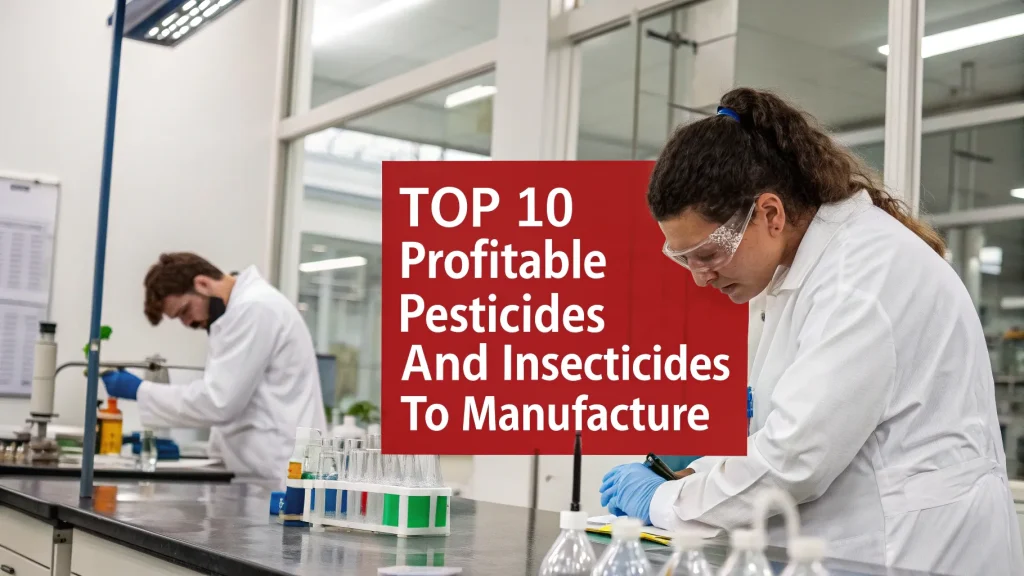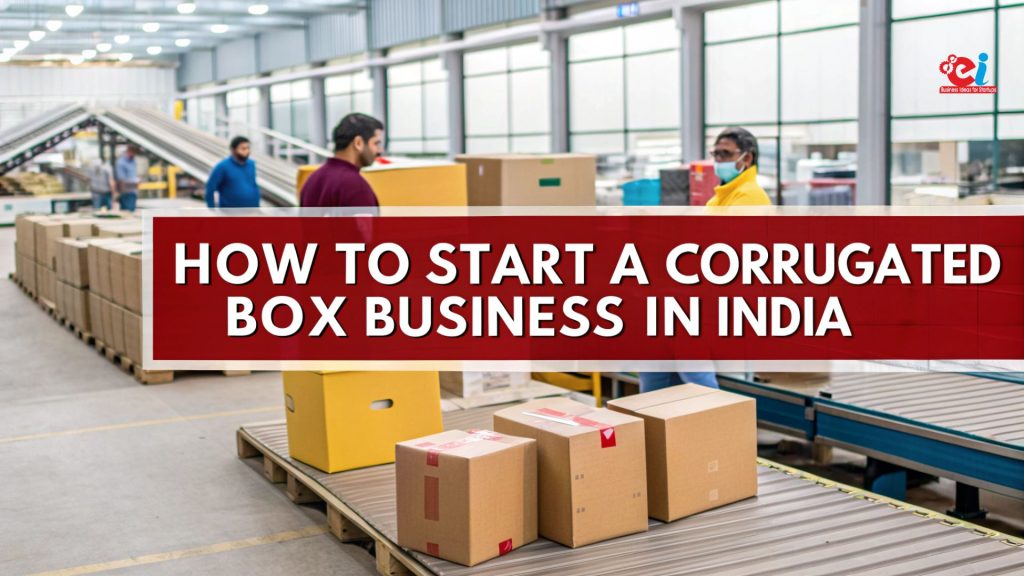The production of Bio-Organic Fertilizer from Tea Waste presents a sustainable and profitable business opportunity in the agriculture and waste recycling industries. Tea is one of the most consumed beverages globally, and its production and processing generate substantial amounts of waste. When managed correctly, this organic waste—rich in nutrients and organic matter—can be transformed into high-quality bio-fertilizers. These fertilizers not only promote soil health and increase crop productivity but also contribute to circular economy practices. Starting a venture in this domain helps reduce environmental waste while generating income through green innovation.
Growing Demand for Organic Solutions in Agriculture
Farmers and agribusinesses are increasingly shifting from synthetic chemical fertilizers to organic alternatives due to soil degradation, water pollution, and rising awareness about eco-friendly cultivation. This shift is opening doors for new ventures in organic input production. Bio-Organic Fertilizer from Tea Waste is emerging as a smart solution that aligns with sustainable farming goals. It offers essential nutrients like nitrogen, potassium, phosphorus, and carbon—vital for plant growth—while improving soil microbial activity and moisture retention.
Tea waste is abundantly available from tea processing units, tea stalls, canteens, and households. Rather than being discarded in landfills, it can be collected, processed, and converted into a high-value product. Governments and agricultural departments are also promoting organic fertilizer use through subsidy schemes and awareness campaigns, which further enhances the market demand for natural fertilizers derived from biodegradable waste.
Visit this Page for More Information: Start a Business in Fertilizer Industry
Tea Waste as a Raw Material
Tea waste consists of used tea leaves, residues from tea factories, and rejected grades of tea unsuitable for consumption. These materials are rich in organic carbon, cellulose, tannins, and polyphenols, making them highly beneficial for composting and microbial activity. When processed appropriately, Bio-Organic Fertilizer from Tea Waste becomes an excellent soil conditioner.
The key to successful production lies in sourcing clean, uncontaminated tea waste. Industrial tea processors, hotels, and local vendors can be tied up with to ensure a steady raw material supply. Pre-treatment methods such as drying, shredding, and microbial inoculation are usually required to enhance the decomposition process and minimize any potential odor or mold issues.
Business Plan: Production of Bio-Organic Fertilizer from Tea Waste
Manufacturing Process and Techniques
The production of Bio-Organic Fertilizer from Tea Waste typically involves aerobic composting or vermicomposting methods. The process is relatively simple, scalable, and eco-friendly. Here’s how it works:
-
Collection and sorting: Tea waste is collected and sorted to remove non-biodegradable impurities like plastic or wrappers.
-
Pre-processing: The waste is dried slightly and shredded for faster decomposition.
-
Composting: Tea waste is mixed with cow dung, agricultural residues, or microbial cultures, then left to decompose under controlled moisture and temperature conditions for 30–45 days.
-
Turning and aeration: The compost piles are turned periodically to allow air circulation and microbial activity.
-
Curing and sieving: Once fully decomposed, the compost is cured, dried, and sieved to obtain fine granules.
-
Packaging: The final product is packed into moisture-resistant bags and labeled for retail or wholesale sale.
This process may be enhanced with the addition of bio-agents like Trichoderma or Azospirillum to convert it into a functional bio-organic fertilizer with pest control or nitrogen-fixing properties.
Read Similar Articles: Fertilizers – Inorganic and organic
Investment and Infrastructure
Starting a small to medium-scale Bio-Organic Fertilizer from Tea Waste unit can require an investment ranging from ?8 to ?25 lakh. This includes:
-
Land or rental shed (1,000–5,000 sq. ft.)
-
Composting pits or windrow systems
-
Shredders and sieving machines
-
Packaging and labeling setup
-
Labor, water tanks, and microbial inoculants
The operational cost is low, and raw material procurement is often free or inexpensive. Profit margins are healthy since organic fertilizer sells at ?10–?30 per kg based on quality and branding, while production costs are relatively minimal.
Return on investment can be achieve within the first 1–2 years if operate efficiently, especially with contracts from nurseries, organic farms, and state agriculture departments.
Legal Permissions and Quality Standards
For establishing a Bio-Organic Fertilizer from Tea Waste business, the following registrations and certifications are typically need:
-
Udyam MSME registration
-
GST registration
-
Fertilizer Control Order (FCO) license from the agriculture department
-
Pollution control board NOC
-
Organic certification (NPOP or similar) for retail marketing
-
Trademark registration for product branding
Testing the product for parameters like nitrogen, phosphorus, carbon content, pH, and microbial load is essential to meet FCO standards. Certification not only builds trust but also enables participation in government supply chains.
Related Feasibility Study Reports: Fertilizers, Fertilisers, Inorganic Fertilizers (Mineral Fertilizer)
Marketing and Distribution Strategy
The target market for Bio-Organic Fertilizer from Tea Waste includes:
-
Organic farmers and cooperatives
-
Horticulture and floriculture units
-
Greenhouse and polyhouse operators
-
Nurseries, gardeners, and landscape designers
-
Agriculture input dealers and distributors
Sales can be boost through online platforms, local agricultural expos, Krishi Vigyan Kendras, and collaborations with FPOs (Farmer Producer Organizations). Educational marketing about the product’s eco-friendly benefits, improved soil health, and long-term yield advantages helps in customer acquisition. Packaging in 5 kg and 25 kg bags with branding and usage instructions makes it retail-ready.
Government support through tenders or rural development schemes also creates steady institutional demand for high-quality organic fertilizers.
Environmental and Social Impact
One of the biggest advantages of the Bio-Organic Fertilizer from Tea Waste business is its contribution to environmental sustainability. This model reduces landfill pressure, encourages organic farming, and lowers chemical residue in crops and soil. It promotes responsible waste management at the source, especially in tea-centric regions where industrial waste is high.
Expansion Opportunities
As the business matures, producers can consider:
-
Adding herbal compost or bio-pesticide components
-
Launching liquid bio-fertilizer variants
-
Contract manufacturing for organic brands
-
Exporting to organic farming regions abroad
-
Building franchise or dealership networks
You can also set up mobile composting units near tea processing hubs for decentralized production. These innovations not only diversify your product portfolio but also enhance brand value and customer loyalty.
Conclusion
Starting a Bio-Organic Fertilizer from Tea Waste business is a smart move in today’s eco-conscious and agriculture-driven economy. It turns everyday waste into wealth while meeting the rising demand for organic and sustainable farming inputs. The business is scalable, profitable, and impactful—both environmentally and socially.
By leveraging local resources, government support, and a growing market, entrepreneurs can create a strong foundation in the organic input sector while promoting healthier farming and cleaner ecosystems.
Read our Books Here: Biofertilizer, Biofertiliser, Biogas, Organic Farming, Vermicompost, Vermiculture, Biotechnology
See More Links:
- Start a Business in Asia
- Start a Business in Potential Countries for Doing Business
- Best Industry for Doing Business
- Business Ideas with Low, Medium & High Investment
- Looking for Most Demandable Business Ideas for Startups
- Startup Consulting Services
- Start a Business in Africa
- Start a Business in India
- Start a Business in Middle East
- Related Videos
- Related Books
- Related Projects
NIIR PROJECT CONSULTANCY SERVICES, DELHI
An ISO 9001:2015 Company
ENTREPRENEUR INDIA
106-E, Kamla Nagar, Opp. Mall ST,
New Delhi-110007, India.
Email: npcs.ei@gmail.com
Tel: +91-11-23843955, 23845654, 23845886
Mobile: +91-9097075054, 8800733955
Website: https://www.entrepreneurindia.co
https://www.niir.org





